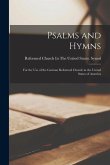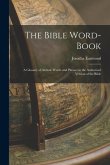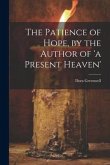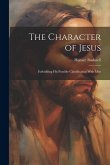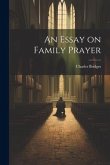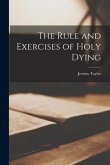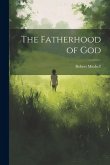Andere Kunden interessierten sich auch für
Produktdetails
- Verlag: Creative Media Partners, LLC
- Seitenzahl: 242
- Erscheinungstermin: 26. Oktober 2022
- Englisch
- Abmessung: 234mm x 156mm x 13mm
- Gewicht: 345g
- ISBN-13: 9781015612181
- ISBN-10: 1015612180
- Artikelnr.: 67007521
Hinweis: Dieser Artikel kann nur an eine deutsche Lieferadresse ausgeliefert werden.
- Libri GmbH
- Europaallee 1
- 36244 Bad Hersfeld
- gpsr@libri.de
William Reed Huntington (1838-1909) was a distinguished American Episcopal priest, theologian, and liturgist, noted for his significant contributions to the development of liturgy in the Anglican tradition. Born on September 20, 1838, in Lowell, Massachusetts, Huntington pursued a theological path that led to his ordination in 1862. He served as rector of Grace Church in New York City from 1883 until his death in 1909, during which time he emerged as a prominent figure in church leadership and ecumenical endeavors. Huntington's scholarly endeavors were augmented by his role as a key contributor to the revision of the Episcopal Book of Common Prayer in 1892, an effort that shaped the worship practices of the Episcopal Church in America. His expertise in liturgical studies is encapsulated in his concise work 'A Short History of the Book of Common Prayer', a foundational text that chronicles the development and significance of the Book of Common Prayer as a spiritual and cultural cornerstone. In it, he explored the book's origins, evolutions, and its role within the Anglican Communion. Huntington's literary style is characterized by clarity, depth, and an eloquent articulation of complex theological and liturgical concepts, rendering his writing both accessible to lay readers and valuable to scholars. His legacy extends beyond his theological writings, as he was also a proponent of church unity, best exemplified by his formulating the 'Quadrilateral', which outlined four essential elements for Christian unity and served as a basis for dialogue among Christian denominations. Huntington's impact on the Episcopal Church and broader Christian liturgical practices endures, and his writings continue to inspire and inform generations of clergy and laypersons alike.


